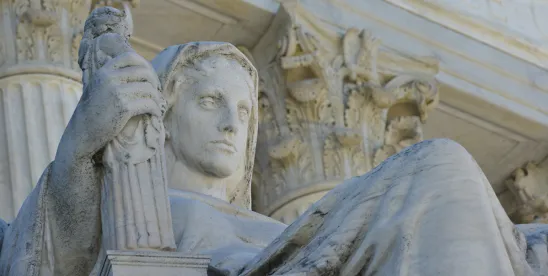Should people be paid for bringing class actions resulting in settlements? That is the question that MIGHT be headed to the U.S. Supreme Court. And the statute that brought it to you? The TCPA, of course.
The TCPA has resulted in NUMEROUS U.S. Supreme Court rulings in the last dozen years or so.
Sure, everyone knows Facebook. Many of you know AAPC. But what about Campbell Ewald? Mims? PDR Resources? Holster?
The Supremes are no stranger to weighing on TCPA cases–and esoteric issues arising out of the TCPA.
This is no surprise since the TCPA is one of the most catastrophically dangerous statutes on the books. And it has resulted in an enormous number of bet-the-company cases: complex federal court litigation that draws some of the best attorneys in the world into the ring on both sides of the v.
One of the top lawyers on the Plaintiff’s side–in fact, the NUMBER ONE guy in TCPAWorld’s power rankings–is Mike Greenwald of Greenwald Davidson Radbill.
The guy is an absolute monster, sporting an incredible 5-0 record in certification victories in wrong number TCPA cases. This has made him one of the most dangerous (and wealthy) TCPA lawyers out there.
Despite Mike’s incredible talents he has suffered some setbacks, and undoubtedly his largest was his stunning loss in Johnson v. Dickensen—a case that was a seemingly routine TCPA class action settlement.
The settlement drew only a single objection–from an individual the claimed the settlement’s incentive award was unlawful. The district court overruled the objection but the Eleventh Circuit shockingly reversed holding that INCENTIVE AWARDS ARE UNLAWFUL!
Backing up, an incentive award is a relatively small payment made to a successful litigant who brings a class action resulting in a settlement for the class. They have been recognized in pretty much every court and are routine practice across the country. Still the Eleventh Circuit threw them out relying on some odd precedent from the 1800s that didn't seem to have much bearing on the case.
The Eleventh Circuit recently denied an en banc appeal and Greenwald announced on our podcast–for the first time publicly–that Johnson would be seeking an appeal to the Supreme Court.
And now he has.
In a petition filed today, Mr. Johnson hopes to etch his name in Supreme Court lore. If successful, Johnson’s appeal will have preserved incentive awards and dictated their continued use throughout the country.
But if he should lose?
Well then there would be no financial incentive for class representatives to pursue gritty complex litigation–a huge win for corporate America and those looking to neutralize consumer class litigation.
High stakes, indeed.
And that’s what makes this appeal so interesting. Even before the recent addition of ACB, the court was described by Justice Kagan as ” a Court bent on diminishing the usefulness of Rule 23, [looking for] a class action, ready to be dismantled.”
Seems like this appeal would be a ready-made vehicle for the Supremes to continue their dismantling efforts.
We will keep a VERY close eye on this.
For the interested you an read the petition–which breaks with tradition and does NOT cite to the Czar for some reason–here: Petition for Writ




 />i
/>i

